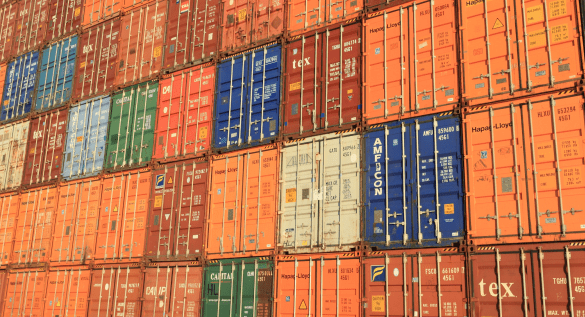Incoterms are a set of internationally recognized agreements that determine who is responsible for the physical handling and payment of costs for a shipment of goods, right the way through from the seller or manufacturer’s premises to their buyer’s destination.
Each of the different Incoterms provides a framework that outlines whether the buyer or seller of a shipment is responsible for its handling and costs at each stage of the shipping process. This helps to avoid misunderstandings between people who may speak different languages, or have different local customs and working practices.
The word “Incoterms” stands for “International Commercial Terms,” and the Incoterms framework is managed and updated when necessary by the International Chamber of Commerce.
Knowing the meaning of each individual Incoterm is important for anyone importing or exporting goods internationally, and will enable you to compare the costs involved for shipments offered by different sellers and make the right choice.
The set of Incoterms in current use is called Incoterms 2010, and we’ll provide a short explanation of each of the eleven Incoterms that make up the Incoterms 2010 framework below.
EXW or Ex Works
EXW or “Ex Works” requires the originator or seller of the goods to make them available for collection by the buyer at a named place – usually the seller’s own premises, like a warehouse or factory.
The buyer is responsible for collecting the goods and arranging their onwards transit. This Incoterm places the minimum responsibility on the seller or originator, and the maximum responsibility on the buyer.
FCA or Free Carrier
FCA or “Free Carrier” requires the seller or originator of the goods to clear them for export and deliver them to a named place provided by the buyer.
If this named place is controlled by the seller, they are responsible for loading and unloading. If the named place is not controlled by the seller (such as the buyer’s own premises or another place of their choosing) loading and unloading is the responsibility of the buyer.
FAS or Free Alongside Ship
The FAS or “Free Alongside Ship” Incoterm applies to water shipments only. FAS makes the seller responsible for clearing the goods in the shipment for export and delivering them alongside of the buyer’s chosen ship at a named port.
As soon as delivery alongside has been completed, all responsibility passes to the buyer.
FOB or Free on Board
Like FAS, FOB or “Free on Board” applies to water shipments only. However, there is an exception to this in the USA (and certain other common law countries) that means that FOB can be applied to any method of inland transport, not just water freight.
This Incoterm makes the seller responsible for the risks and costs associated with every stage of the process up to and including loading the goods onto the ship. When the goods are “clearly set aside or otherwise identified as the contract goods” or “appropriated to the contract,” the seller’s responsibilities end, and pass over to the buyer.
CFR or Cost and Freight
CFR or “Cost and Freight” is another Incoterm that can be used for shipment by water. CFR places the responsibility for getting the shipment to its port of departure on the seller, as well as the cost of onward transport to its destination port.
However, while the cost of transport to the destination port falls to the seller, the risk passes to the buyer at the point that the goods have been loaded onto the ship – and the seller is not under obligation to insure the shipment.
CIF or Cost, Insurance and Freight
The CIF or “Cost, Insurance and Freight” Incoterm is very similar to CFR, with one exception – the seller or originator of the goods must insure the goods to their port of destination at 110% of their contract value.
CPT or Carriage Paid (To)
CPT or “Carriage Paid To” makes the seller or originator of the goods responsible for paying for their carriage (including customs clearance fees) to a named destination. However, as soon as the goods pass into the hands of the carrier, the risk for the shipment pass to the buyer.
CIP or Carriage and Insurance Paid (To)
CIP or “Carriage and Insurance Paid To” is similar to CPT, with the exception that the originator or seller must insure the goods for their journey at a rate of 110% of their contract value.
DAT or Delivered at Terminal
DAT or “Delivered at Terminal” makes the seller or originator responsible for delivering and unloading the goods at a named terminal. This includes covering all associated fees for transit, export, and everything else, as well as holding the risk.
After the goods are unloaded risk and responsibility falls to the buyer, including covering import duties and customs fees.
DAP or Delivered at Place
DAP or “Delivered at Place” places the risk and cost with the seller up until the point that they make the goods available to the buyer at their named destination. This includes covering any delay or demurrage charges.
The buyer then takes on the risk and responsibility for the shipment from the point of unloading onwards, including covering customs and import duties.
DDP or Delivered Duty Paid
DDP or “Delivered Duty Paid” makes the seller or originator responsible for delivering the goods and paying all associated costs (including taxes, customs fees, and shipping) to a named place in the buyer’s destination country.
Risk and responsibility only passes to the buyer once the goods are safely delivered to their destination.
Knowing which Incoterm to choose can be confusing if you’re new to the business. We can help you to decide on the best Incoterm to use for your shipments and advise you on comparing the costs and risks involved for each different option. Contact us now for advice and guidance.
